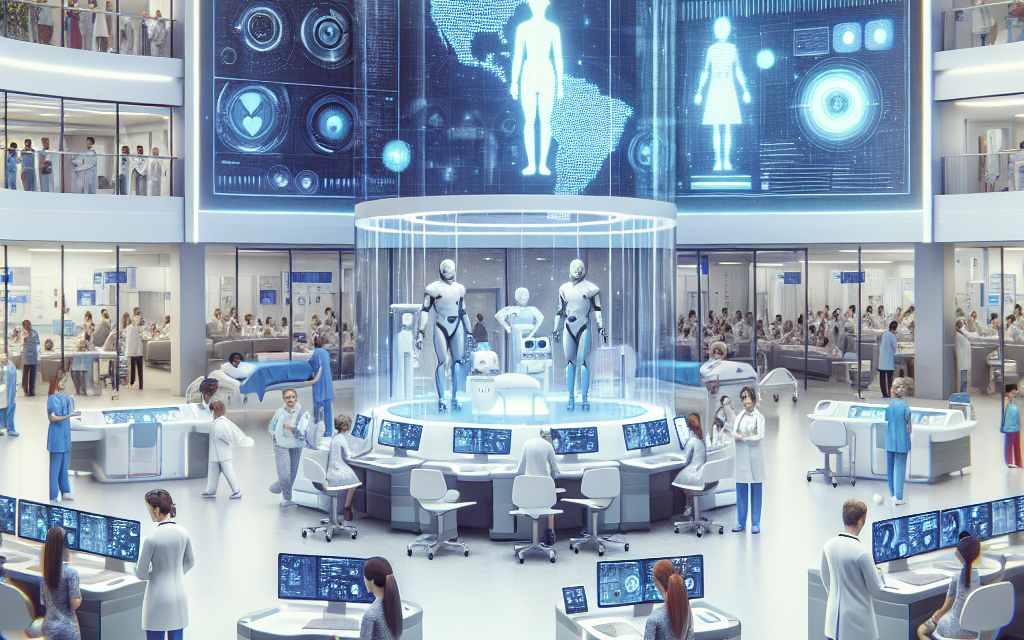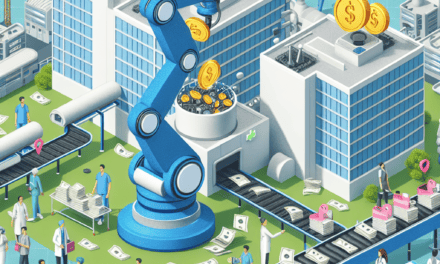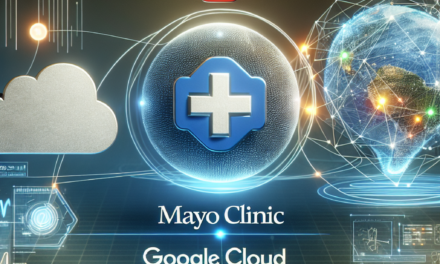Mount Sinai Unveils Innovative Center for AI-Driven Pediatric Care
In a groundbreaking move that promises to revolutionize pediatric healthcare, Mount Sinai Health System has launched an innovative center dedicated to AI-driven pediatric care. This initiative aims to harness the power of artificial intelligence to enhance diagnosis, treatment, and overall patient experience for children. As healthcare continues to evolve, the integration of AI technologies presents a unique opportunity to improve outcomes and streamline processes in pediatric medicine. This article delves into the various aspects of this innovative center, exploring its implications, benefits, and the future of pediatric care.
The Vision Behind the Center
The establishment of the AI-driven pediatric care center at Mount Sinai is rooted in a vision to create a more efficient, effective, and personalized healthcare experience for children. The center aims to leverage advanced technologies to address the unique challenges faced in pediatric medicine, including the need for accurate diagnoses, tailored treatment plans, and improved patient engagement.
One of the primary motivations for this initiative is the increasing complexity of pediatric cases. Children often present with a range of symptoms that can be difficult to interpret, leading to misdiagnoses or delayed treatments. By utilizing AI algorithms that analyze vast amounts of data, healthcare providers can make more informed decisions, ultimately improving patient outcomes.
Moreover, the center seeks to bridge the gap between technology and human touch in healthcare. While AI can enhance diagnostic accuracy and treatment efficiency, the importance of compassionate care remains paramount. The center’s approach emphasizes the integration of AI tools with the expertise of pediatricians, ensuring that technology serves as an aid rather than a replacement for human interaction.
AI Technologies in Pediatric Care
The core of the Mount Sinai initiative lies in the deployment of various AI technologies that can transform pediatric care. These technologies encompass machine learning, natural language processing, and predictive analytics, each playing a crucial role in enhancing healthcare delivery.
- Machine Learning: This subset of AI involves training algorithms to recognize patterns in data. In pediatric care, machine learning can be used to analyze patient histories, lab results, and imaging studies to assist in diagnosing conditions more accurately. For instance, algorithms can be trained to identify signs of pediatric diseases such as asthma or diabetes based on historical data.
- Natural Language Processing (NLP): NLP enables computers to understand and interpret human language. In a pediatric setting, NLP can be utilized to analyze clinical notes and patient interactions, helping healthcare providers identify trends and areas for improvement in patient care. This technology can also facilitate better communication between doctors and patients, ensuring that children and their families understand their health conditions.
- Predictive Analytics: By analyzing historical data, predictive analytics can forecast potential health issues in children before they arise. For example, by examining patterns in patient data, healthcare providers can identify children at risk for obesity or developmental delays, allowing for early intervention and preventive measures.
These technologies not only enhance diagnostic capabilities but also streamline administrative processes, reducing the burden on healthcare providers and allowing them to focus more on patient care. The integration of AI into pediatric care represents a significant shift towards a more data-driven approach, where decisions are informed by evidence rather than intuition alone.
Case Studies and Success Stories
To illustrate the potential impact of AI-driven pediatric care, several case studies and success stories from other institutions can provide valuable insights. These examples highlight how AI technologies have already begun to transform pediatric healthcare in various settings.
- Boston Children’s Hospital: This institution has implemented AI algorithms to predict which patients are at risk of developing complications after surgery. By analyzing preoperative data, the hospital has been able to reduce postoperative complications significantly, leading to shorter hospital stays and improved patient satisfaction.
- Children’s Hospital of Philadelphia: This hospital has utilized machine learning to enhance its diagnostic capabilities for rare genetic disorders. By analyzing genetic data from thousands of patients, the hospital has developed algorithms that can identify potential genetic conditions more quickly and accurately, leading to earlier interventions and better outcomes.
- Stanford Children’s Health: At Stanford, researchers have developed an AI tool that analyzes chest X-rays to detect pneumonia in children. This tool has demonstrated a higher accuracy rate than human radiologists, showcasing the potential of AI to assist in diagnostic processes and reduce the time to treatment.
These case studies underscore the transformative potential of AI in pediatric care. By learning from the successes of other institutions, Mount Sinai’s center can implement best practices and tailor its approach to meet the specific needs of its patient population.
Ethical Considerations and Challenges
While the integration of AI into pediatric care offers numerous benefits, it also raises important ethical considerations and challenges that must be addressed. As healthcare providers navigate this new landscape, it is crucial to ensure that the use of AI technologies aligns with ethical standards and prioritizes patient welfare.
- Data Privacy: The use of AI in healthcare relies heavily on data collection and analysis. Protecting patient privacy is paramount, especially when dealing with sensitive information related to children. Healthcare providers must implement robust data security measures and comply with regulations such as HIPAA to safeguard patient information.
- Bias in Algorithms: AI algorithms are only as good as the data they are trained on. If the training data is biased or unrepresentative, the algorithms may produce skewed results, leading to disparities in care. It is essential for healthcare providers to continuously evaluate and refine their algorithms to ensure fairness and equity in treatment.
- Informed Consent: As AI technologies become more integrated into pediatric care, obtaining informed consent from patients and their families becomes increasingly complex. Healthcare providers must ensure that families understand how AI will be used in their child’s care and the potential risks and benefits involved.
Addressing these ethical considerations is vital for building trust between healthcare providers and patients. By prioritizing transparency and accountability, Mount Sinai’s center can set a precedent for responsible AI use in pediatric care.
The Future of Pediatric Care with AI
The launch of Mount Sinai’s AI-driven pediatric care center marks a significant milestone in the evolution of healthcare for children. As the center continues to develop and implement innovative technologies, the future of pediatric care looks promising.
- Personalized Medicine: One of the most exciting prospects of AI in pediatric care is the potential for personalized medicine. By analyzing individual patient data, healthcare providers can tailor treatment plans to meet the unique needs of each child, leading to more effective interventions and improved outcomes.
- Telemedicine Integration: The COVID-19 pandemic accelerated the adoption of telemedicine, and AI can further enhance this model. By integrating AI tools into telehealth platforms, healthcare providers can offer more accurate diagnoses and treatment recommendations during virtual visits, ensuring that children receive timely care regardless of their location.
- Continuous Learning: AI systems have the ability to learn and adapt over time. As more data is collected and analyzed, these systems can improve their accuracy and effectiveness, leading to ongoing advancements in pediatric care. This continuous learning model can help healthcare providers stay at the forefront of medical knowledge and best practices.
As Mount Sinai’s center for AI-driven pediatric care continues to evolve, it has the potential to set new standards for pediatric healthcare. By embracing innovation and prioritizing patient-centered care, the center can lead the way in transforming how healthcare is delivered to children.
Conclusion
The unveiling of Mount Sinai’s innovative center for AI-driven pediatric care represents a significant leap forward in the integration of technology into healthcare. By harnessing the power of AI, the center aims to enhance diagnostic accuracy, streamline processes, and ultimately improve patient outcomes for children. Through the use of advanced technologies such as machine learning, natural language processing, and predictive analytics, healthcare providers can make more informed decisions and deliver personalized care tailored to each child’s needs.
While the benefits of AI in pediatric care are substantial, it is essential to address the ethical considerations and challenges that accompany this technological shift. By prioritizing data privacy, fairness, and informed consent, Mount Sinai can build trust with patients and their families, ensuring that the integration of AI aligns with ethical standards.
As we look to the future, the potential for AI to transform pediatric care is immense. With ongoing advancements in technology and a commitment to patient-centered care, Mount Sinai’s center is poised to lead the way in shaping the future of healthcare for children. The journey towards AI-driven pediatric care is just beginning, and the possibilities are limitless.





